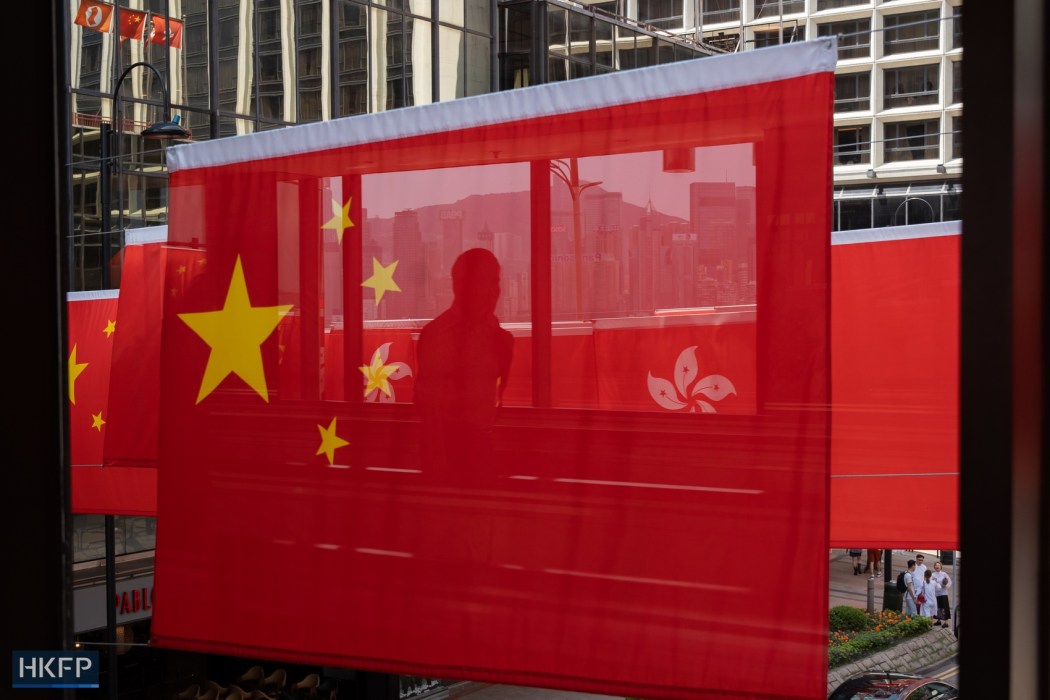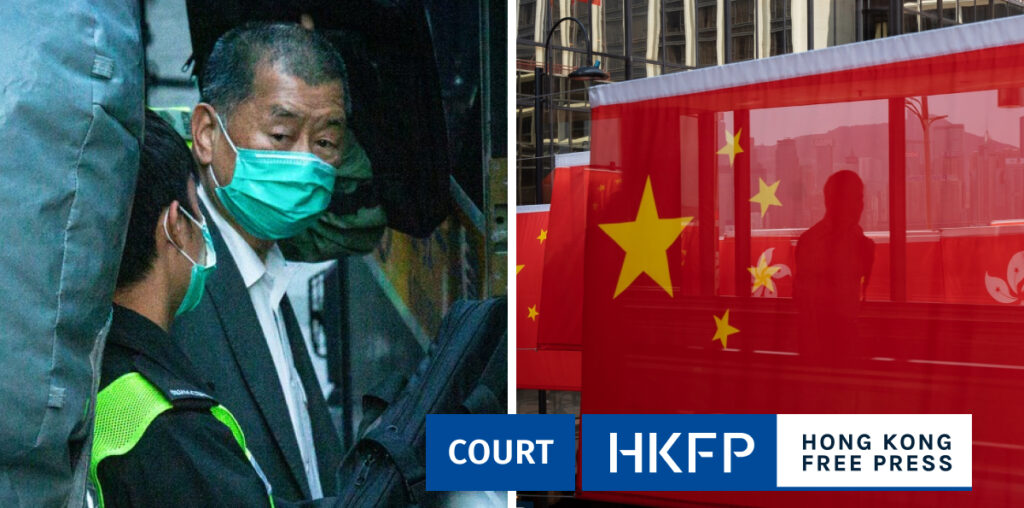Jailed Hong Kong media tycoon Jimmy Lai has told his national security trial it was “crazy” to think that China’s Communist Party could be overthrown.

Lai, 76, also said on Thursday Hong Kong protesters could only win international sympathy by acting “righteously” and standing on the “moral high ground,” as judges inquired whether he had conducted international lobbying during the protests and unrest of 2019.
The founder of the now-shuttered Apple Daily newspaper has pleaded not guilty to two charges under a Beijing-imposed national security law of conspiring to collude with foreign forces, and another count of conspiring to publish “seditious” materials under colonial-era legislation. He faces life imprisonment if convicted.
His lawyer Steven Kwan asked the tycoon about a January 2020 meeting in Taipei with UK-based campaigner Finn Lau, also known by the alias “mutual destruction bro,” and with Lai’s co-defendant Chan Tsz-wah, who turned prosecution witness after pleading guilty to the foreign collusion charge.
According to Chan’s earlier testimony, Lai had said during the meeting that the overthrow of China’s Communist Party (CCP) may not be achieved “in his generation” and he had wished that young people could “take up the task.”
“I am not that mad to think of this crazy thing,” Lai said on Thursday – the sixth day of his testimony – in response to Chan’s testimony.
“To think about overthrowing the CCP, I think it’s out of the dimension of any discussion. It’s impossible,” he said.
“Do you think sanctions [and] blockade would overthrow the CCP? It’s more than ridiculous.”


Lai also denied expressing interest during the meeting in making Lau a “political star” or offering him an allowance of £10,000, suggesting Chan “made up” his evidence.
“That’s farcical… to think about engineering one’s nature to be a leader, it’s ridiculous,” he said, adding it was “ignorant or arrogant” to hold such an idea.
Lai said his “only purpose” in meeting Lau was to seek his help in forming a leadership group among radical protesters after intense clashes broke out at the Hong Kong Polytechnic University at the height of the 2019 protests.
Lau had many young followers and influence, the tycoon said, adding that he hoped radical protesters could be regulated and violence contained.
Lai said he had made a remark when Lau raised during the meeting the notion of “China implosion,” an idea popularised during the 2019 protests which suggested the country’s economic breakdown.
“China spent a lot of money in controlling the people… so it’s possible that they will exhaust their resources,” Lai said he told the meeting.
But he insisted he had never discussed the idea of requesting foreign sanctions on China and Hong Kong with Chan and Lau, saying he had no knowledge of the pair’s involvement in international lobbying campaigns.
‘Greatest lobbying’
Lai also said the “international front,” a phrase which protesters used to refer to their global lobbying campaign in 2019, was “never on my mind.”
But he said international support would be the “salvation” of Hong Kong’s pro-democracy movement and could protect the city “from the encroachment of China [on] our freedom.”
Judge Alex Lee, one of the three designated national security judges hearing the case, questioned whether Lai was contradicting himself when he said he had never thought of international lobbying.


Judge Susana D’Almada Remedios asked how Lai expected to gain international support.
In response, Lai said the pro-democracy movement could obtain the sympathy of the international community by conducting demonstrations “peacefully and rationally.”
“If we conduct our demonstration on a moral high ground and people sympathise with us, I think this is the greatest lobbying we can have,” he added.
Prosecutors have accused Lai of funding activists including Lau and Chan in requesting foreign sanctions, blockade, or hostile activities against Beijing and Hong Kong.
Lai is expected to further explain his meetings with Chan when the trial resumes on Friday.
Lai has been detained since December 2020. Three judges – handpicked by Hong Kong’s chief executive to hear national security cases – are presiding over his trial in the place of a jury, marking a departure from the city’s common law traditions.
Beijing inserted national security legislation directly into Hong Kong’s mini-constitution in June 2020 following a year of pro-democracy protests and unrest. It criminalised subversion, secession, collusion with foreign forces and terrorist acts – broadly defined to include disruption to transport and other infrastructure. The move gave police sweeping new powers and led to hundreds of arrests amid new legal precedents, while dozens of civil society groups disappeared. The authorities say it restored stability and peace to the city, rejecting criticism from trade partners, the UN and NGOs.
Support HKFP | Policies & Ethics | Error/typo? | Contact Us | Newsletter | Transparency & Annual Report | Apps
Help safeguard press freedom & keep HKFP free for all readers by supporting our team


Source link

